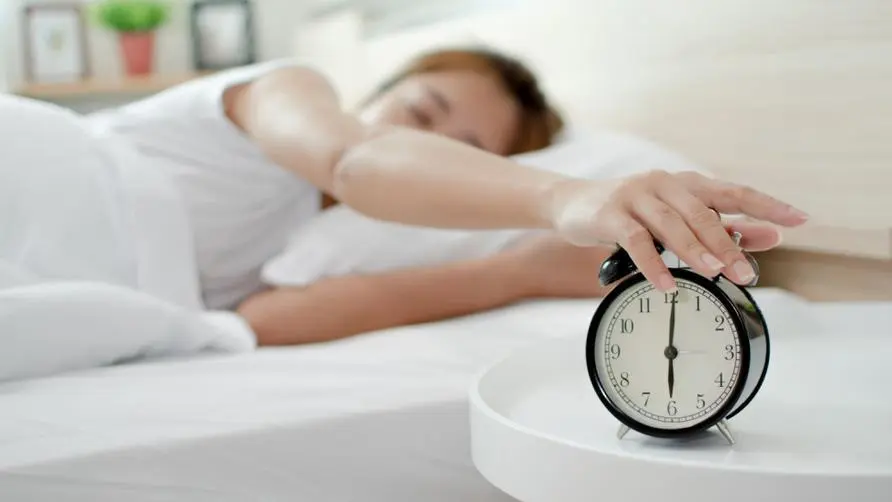Be careful if you like to stay up late, work shifts, or snore in the middle of the night! Study: Sleeping less than half an hour increases the risk of high blood pressure by 29%

Irregular sleep for a long time may be more harmful to health than imagined? Previous studies have pointed out that insufficient sleep or insomnia may be associated with a higher risk of cardiovascular disease; now a study published in the journal “Sleep” points out that “irregular” sleep schedules, such as staying up late, working shifts, waking up in the middle of the night, etc. , there are also health risks and may be related to a higher risk of high blood pressure.
If your work and rest are not normal, “hypertension” will come to your door! Study: Losing half an hour of sleep increases risk by 29%
A research team from Australia’s Flinders University analyzed the sleep records of 12,300 subjects in the past nine months, using under-mattress sleep devices and portable blood pressure monitors to record indicators. The research team controlled for variables such as age, gender, and BMI to adjust for the potential association between sleep patterns and high blood pressure. Preliminary results indicate that 2,499 subjects had hypertension related to sleep irregularities.
After analyzing 2 million nights of sleep data, the study found that irregular sleep time and sleep duration are indeed related to a higher risk of high blood pressure: long-term irregular sleep increases the risk of high blood pressure by 9-15%; sleep A decrease or increase of 38 minutes compared to every other day was associated with an 11% increase in risk; a decrease or increase of 31 minutes was associated with a 29% increase in risk.
Study author Danny Eckert said that sleep helps regulate body stress and promote metabolism; and hormonal fluctuations caused by irregular sleep may be the main cause of hypertension. In this study, the association with high blood pressure persisted even when participants tried to make up for sleep loss by catching up on sleep.
Does irregular sleep lead to increased cardiovascular risk? Scholar: Five ethnic groups may bear the brunt
Eckert believes that sleep irregularities may alter autonomic nervous system function and other physiological events that affect hypertension. Especially for certain ethnic groups, whose work and rest periods fluctuate, they are more likely to be at high risk for hypertension.
“Irregular sleep is particularly worrying, especially for shift workers, people with sleep apnea, people diagnosed with COVID-19, people with mental illness, and even parents of newborns. They need to pay special attention to the consequences of irregular sleep on the body. Impact.”
Previous studies published in Elsevier have confirmed that even small increases in blood pressure, especially at night, may be associated with significant increases in cardiovascular morbidity and mortality. Among them, the severity of restless legs syndrome (RLS) and obstructive sleep apnea is highly correlated with the risk of hypertension.
The study pointed out that a 10mmHg increase in average nocturnal systolic blood pressure was associated with a 21% increase in cardiovascular mortality. And as age increases, the cardiovascular risk caused by systolic blood pressure becomes higher. Lack of sleep, insomnia, irregular sleep and other conditions may interact with each other. If you do not adjust your work and rest timely, or seek interventional treatment from a doctor, it may have an irreparable impact on the cardiovascular system.
Eckert said that developing a good sleep routine should start with a fixed sleep time, avoiding contact with 3C products before going to bed, adjusting the brightness of the room and isolating noise. “If you still feel tired after a full night’s sleep, you should consult a doctor immediately, especially if you are obese or those who snore frequently.”
source:
Sleep and Hypertension - National Institute of Health
Further reading:
Have “sleep problems” become the norm during the epidemic? Simple “6 steps” to improve sleep quality





